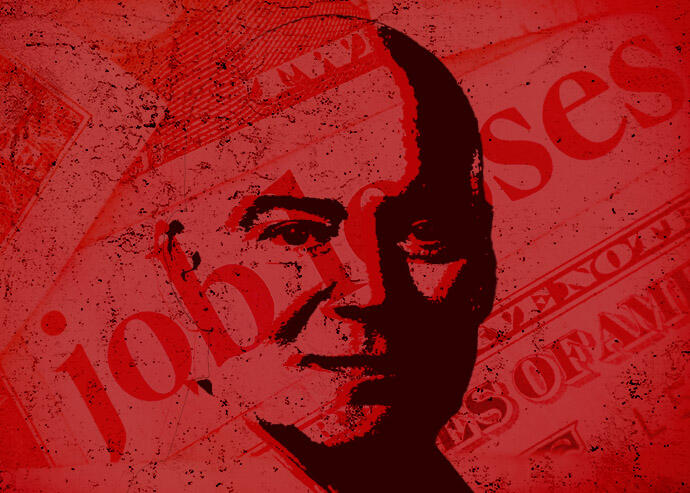Home is where the heart is. This month, it’s also where the heartbreak is.
November has brought a wave of staggeringly bad news from some of the residential industry’s biggest players, all of whom are struggling to grapple with the sudden change in the U.S. housing market.
From a historic 2021 defined by record-low mortgage rates, the unleashing of pent-up demand and a pandemic-induced dispersion of the luxury market, they’re now facing a completely different, and far grimmer, reality.
Just consider the latest numbers from the Mortgage Bankers Association: Mortgage applications are down 70 percent year-over-year, with purchase applications down 41 percent and refinancing applications down 87 percent.
Optimistic by design and fond of moonshots, residential leaders are being forced to make existential choices. Let’s break it down.
Redfin says “no mas” to iBuying; Opendoor hemorrhages money
On Wednesday, Redfin announced it was pulling the plug on its iBuying business, the algorithmic-driven home-flipping venture once seen as the holy grail by many of the industry’s biggest players and venture-backed upstarts.
“Maintaining a profit with rising interest rates would make our offers on homes insultingly low,” a spokesperson for Redfin said of its iBuying shutdown. The company also announced it was laying off 13 percent of its staff.
Redfin’s decision to end iBuying comes about a year after Zillow ended its own iBuying venture, Zillow Offers. When CEO Rich Barton got into iBuying in 2019, he described it as an existential imperative for his company and compared it to Netflix’s decision to move into original content.
“If we don’t learn how to drill our own oil wells, we’re going to get cut off,” Barton explained to the Information.
Two years later, faced with ballooning losses and a glitchy home-pricing algorithm, Barton admitted defeat, reported nearly $900 million in losses and bowed out. Rivals like Opendoor rejoiced, projecting that Zillow’s exit would give them primacy in what could become a monstrously large business.
That may still happen, of course. But for now, what’s monstrously large are the losses.
Opendoor said it lost nearly $1 billion in the third quarter, selling many of the 8,250 homes it traded in that period for less than it had paid for them.
“Navigating a once-in-40-years market transition has been anything but easy,” Opendoor CEO Eric Wu told shareholders.
Opendoor’s largest remaining rival in the business, Offerpad, also had a rough quarter, losing $80 million — more than five times what it lost in the previous three months.
Anywhere’s profits tumble; Elliman in the red

Anywhere Real Estate’s Ryan Schneider (Realogy, Getty Images)
Anywhere Real Estate, considered by many market observers to be the most disciplined large brokerage operator, said late last month that its profits had been halved in the third quarter, with CEO Ryan Schneider pointing to a steep drop in transaction volume. The company hinted that it would keep an eye out for more ways to cut costs, including watching the overall market to see if there’s room to negotiate more favorable commission splits.
Meanwhile, Douglas Elliman reported a $4 million loss for the quarter, with chairman Howard Lorber blaming high rates for paralyzing both buyers and sellers.
Lorber said comparing this year to 2021 “doesn’t seem to make much sense,” because last year’s bumper market “was something I don’t think anyone really understands what happened, how it happened so quickly.”
The earnings call that the entire brokerage industry is waiting for, that of Compass, happens Nov. 10.
The cryptocracy crumbles
 Tuesday saw a transaction that one observer described as “crypto’s Lehman moment”: FTX, the second-largest cryptocurrency exchange, valued at $32 billion in January, agreed to sell itself to its larger rival, Binance, for a song. Bloomberg predicts that existing FTX investors, including founder Sam Bankman-Fried, will be completely wiped out by Binance’s bailout. (Update: The deal has now been aborted.)
Tuesday saw a transaction that one observer described as “crypto’s Lehman moment”: FTX, the second-largest cryptocurrency exchange, valued at $32 billion in January, agreed to sell itself to its larger rival, Binance, for a song. Bloomberg predicts that existing FTX investors, including founder Sam Bankman-Fried, will be completely wiped out by Binance’s bailout. (Update: The deal has now been aborted.)
Why does this matter for residential real estate? Well, in the last two years, a pool of buyers have treated the luxury market like their personal fiefdom, given the amount of wealth they rapidly built through crypto bets. The Real Deal dubbed them “the cryptocracy” and chronicled their splashy purchases of trophy homes.
It all adds up to a “meteoric” creation of wealth, David Friedman, co-founder of the platform WealthQuotient, told TRD at the time. But with FTX in tatters — Bloomberg estimates Bankman-Fried’s net worth has dropped by a scarcely believable $15 billion this week — and much of the crypto world in disarray, what will it mean for that particular buyer pool?
